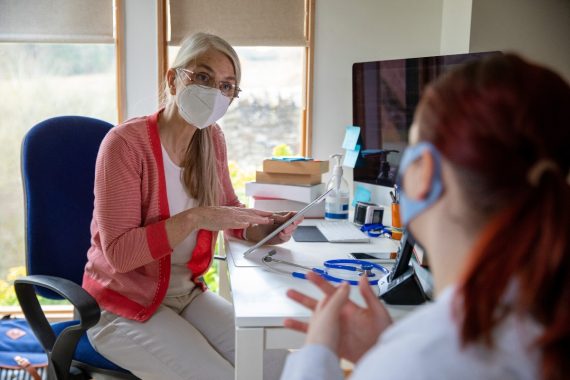Incorporate safety-netting advice into the whole consultation, GPs advised

GPs should consider discussing safety-netting advice with patients throughout a consultation and not just as a rushed add on at the end of an appointment, a team of researchers has found.
It is one of 15 recommendations for GPs been made by a team at Oxford University after a review on the evidence of the best approach to safety-netting in patients where a diagnosis is uncertain.
The researchers, who said this was the first general guide for GPs on the topic, also concluded that people are more likely to follow safety-netting advice if they understand why it is being given, what the actions are and who is responsible for follow up.
Longer appointment times could also improve safety-netting, the researchers found, but acknowledged this is unlikely to be implemented at present.
The National Institute for Health and Care Research funded researchers said that while many of their recommendations also apply to remote consultations, more research is needed to see if people’s understanding and acceptance of safety netting is different than with face-to-face appointments.
It is best to personalise a patient’s risk based on their characteristics rather than population data and the plan should also be personalised taking into account factors such as whether they have had a previous missed diagnosis, the researchers said.
GPs should use simple terms and avoid jargon and abbreviations while at the same time including appropriate technical terms, they reported in BMJ Quality and Safety.
A good safety-netting approach would also address potential sources of anxiety for the patient and give them the chance to share their expectations and concerns, they said.
It is also worth chunking groups of information to help the patient remember the advice, they concluded.
But reduced continuity of care and increasing multimorbidity both have implications for GPs use of safety-netting and proper records of advice given was vital, they added.
Study leader Claire Friedemann Smith, from the University of Oxford, said: ‘Safety-netting is an enormous and frequent part of primary care practice, but there is no general guidance on how it should be done.
‘There is only some guidance for GPs caring for people with suspected cancer and for childhood health, which is helpful in some cases but since safety-netting is meant to help deal with uncertainty we felt this was too narrow.
‘Patients often don’t understand what safety-netting is and many feel it is a way of getting them out of the door. We wanted to look at existing research on communication of risk, and come up with some practical guidance about how to do it,’ she said.
Trainees could particularly benefit from the recommendations which could help them structure consultations and weave safety netting into discussions with patients, the researchers said.
Pulse July survey
Take our July 2025 survey to potentially win £1.000 worth of tokens

Related Articles
READERS' COMMENTS [7]
Please note, only GPs are permitted to add comments to articles












“Longer appointment times could also improve safety-netting, the researchers found, but acknowledged this is unlikely to be implemented at present.”
So ignore this rubbish till the government gives GPs 20 minute consultations. (Funded)
Of course we all( should) do this already.
Patients will still complain if harm occurs as a result of them ignoring safety netting.
They have not worked a single day on the front line.
I had an article published in August 2021 describing this idea. I would love to find out more about the research you conducted. Thank you. https://bjgp.org/content/71/709/370
I seriously can not decide if this is a prank.
Essentially what’s said is that if you have time, resources, good knowledge of the patient and do your job well, then everything will be ok.
Thanks
It’s hard if not impossible to practice medicine satisfactorily in UK NHS general practice. The absurdity of the 10 minute appointment needs to be consigned to a bin. 2 minutes for the patient to walk down to your room, 6 minutes consultation time for 3 or more problems and 2 minutes to record notes which now need to be an essay from a medicolegal perspective.How much more can you add on to the consult? We are now dealing with increasing complexity and multimorbidity, push back from secondary care and increased. medicolegal risk. It is the 10 minute consultation with its limitation which is a core reason for stress and burnout. You really can’t do the job properly! Minimum appointment times should be 20 minutes now, However given the workforce crisis and the politically unpalatable trade off with volume and access, along with contractually needing to provide appointments to “meet the reasonable needs of the patients”, this will never happen. We are our own worse enemy. We will keep plugging away despite the unacceptable risky position and continue overrunning clinics, doing quick fixes (which doesn’t help the patient or GP) and trying the impossible. The job as it is, is a complete turd.
Yes, nailed it. GPs are the proverbial boiled frog. We’ve been doing so much with so little for so long. The only way to practice safely now is to deal properly with what’s in front of you and go home when you can’t think any more.